This article was medically reviewed by Janice Litza, MD. Dr. Litza is a board certified Family Medicine Physician in Wisconsin. She is a practicing Physician and taught as a Clinical Professor for 13 years, after receiving her MD from the University of Wisconsin-Madison School of Medicine and Public Health in 1998.
There are 9 references cited in this article, which can be found at the bottom of the page.
This article has been viewed 37,322 times.
Research suggests that Cytomel (liothyronine) may help treat most types of hypothyroidism and possibly thyroid cancer.[1] Hypothyroidism occurs when your body doesn't produce enough thyroid hormones, which can lead to serious complications if left untreated.[2] Experts say that Cytomel may cause toxic levels of your thyroid hormones if you take too much, so it's important to use your medication exactly as directed by your doctor.[3] Additionally, talk to your doctor if you have any concerns about your medication just to be on the safe side.
Steps
Determining If You Need Cytomel
-
1Know what Cytomel treats. Cytomel is the brand name for liothyronine, which is sometimes prescribed by doctors to treat hypothyroidism. Levothyroxine is more commonly prescribed, but some people have to take liothyronine instead. Hypothyroidism describes a condition in which a person's thyroid gland is unable to create the proper amount of thyroid hormone. In addition:
- Cytomel can be used to decrease enlarged thyroid glands which are commonly known as goiters.
- Hypothyroidism is when thyroid glands do not create enough thyroid hormone. This is different from hyperthyroidism which is a condition in which thyroid glands produce too much thyroid hormone.
- Cytomel works by increasing the patient's metabolic system. After taking Cytomel for a few weeks, your cellular activity will increase, and your body will begin to use carbs, fats, and proteins more efficiently.
- Liothyronine helps balance metabolism, so people sometimes try to take it to boost energy or for weight loss. However, this is not recommended due to serious and fatal effects liothyronine can have if it is not indicated or monitored.
-
2Think about your symptoms and whether you need Cytomel. There are a number of specific symptoms that will indicate whether you suffer from hypothyroidism and need to take Cytomel. When considering if you need Cytomel, think about whether you have the following symptoms:
- Fatigue.
- Increased sensitivity to cold.
- Constipation.
- Dry skin.
- Thinning hair.
- Depressed mood.
- Weight gain
- Heavy or irregular menses in women
- Puffy face.[4]
Advertisement -
3Consult your doctor. Only your doctor can determine if your symptoms and overall health are indicative of hypothyroidism and can be addressed through the use of Cytomel. As a result, you should speak to your doctor immediately if you think that you may suffer from hypothyroidism or another life threatening disorder or condition. Your doctor will:
- Review your symptoms.
- Review your medical history.
- Take diagnostics in order to gather an idea of your overall health.
-
4Discuss the basics of Cytomel use with your doctor. After your doctor determines that you need Cytomel and prescribes it for you, you should spend a little time talking to him or her about the basics of Cytomel use. This will include a number of things:
- Ask your doctor about the ingredients in Cytomel. You should not start taking the medication if you are allergic to any of them.
- Discuss family planning options. If you plan to become pregnant, or if you are pregnant or breast-feeding, this medication may have an effect on the fetus or child.
- Talk to your doctor about heart disease, prescriptions, dietary supplements or herbal preparations. Birth control pills, estrogen, anticoagulants, digitalis, ketamine, tricyclic antidepressants or vasopressor medications' side effects may be multiplied by Cytomel. Insulin or other diabetes medications may become less effective.
- Ask about any planned surgeries you have coming up.[5]
Taking Cytomel
-
1Take your Cytomel exactly as prescribed. Once you've been prescribed your Cytomel, you need to take it exactly as your doctor prescribes it. Disregarding your doctor's orders can endanger your health or at the very least undermine the efficacy of your treatment. Consider:
- Take the medication by mouth with food or without, at the same time every day.
- Separate your daily dosage of this medication by at least 4 hours from preparations containing calcium salts--sucralfate, calcium carbonate or cholestyramine.
- Take your dose of medication as soon as you can, if you have forgotten to take it. Skip the dose if it is nearly time for the next one.
-
2Inform your family and close friends of your condition. After you've begun your treatment with Cytomel, make sure to inform your family and friends of your condition and treatment. This is important because if something happens to you and you are debilitated, doctors will need to know what medications you are taking.
- Tell anyone you live with about your condition and treatment.
- Explain to friends and family what the medicine is and where it is stored.
- Consider getting a medical bracelet with important information.[6]
-
3Learn about using Cytomel. Treatment with Cytomel is both similar to and different from an array of other treatments for metabolic disorders and conditions. However, before you begin treatment with Cytomel, you should learn about the specifics of treatment. Do not take your treatment for granted or embark on it without knowing what you are in store for.
- Due to the nature of the conditions Cytomel is prescribed to treat, Cytomel often needs to be taken for the rest of a person's life.
- Cytomel is often prescribed as a medicine taken orally.
- Cytomel may take several weeks of usage before benefits start to materialize.
- Normal prescriptions range from 25 micrograms to 75 micrograms taken once a day, for mild hypothyroidism.
- Normal prescriptions range from 5 micrograms to 25 micrograms, taken several times a day for myxedema.
- Prescriptions for children vary.[7]
-
4Monitor your body's reactions to your medication. It is crucial to monitor the effects of liothyronine on your body using regular blood tests.[8] This drug will not be prescribed unless you have hypothyroidism, which requires a blood test to be diagnosed. An important part of taking a drug like Cytomel is monitoring your body's reaction. This is important for a couple reasons. First, you'll want to make sure that the drug is doing what it is intended to do. Second, you'll want to make sure there are no adverse reactions to the medicine.
- Check your blood sugars as dictated by your doctor if you are diabetic. Cytomel may affect your blood sugar level.
- Undergo lab tests regularly if you take blood thinners. Your blood thinner dosage may need adjustment.
- Receive lab tests--including thyroid function tests--on a regular basis. This is very important to ensure that the drug is working properly and to determine if your dosage might need to be adjusted.
-
5Tell your doctor if you experience side effects. Knowing about side effects, taking proper dosage, and monitoring your body is not the end of your work when it comes to taking Cytomel. As a result, you need to make sure report all side effects to your doctor as soon as you experience them. Waiting could cause you harm and prolong the period that it takes for your doctor to remedy the problem.
- Tell your doctor if you experience partial hair loss after starting Cytomel. This hair loss is usually temporary.
- Alert your doctor right away if you develop chest pain, diarrhea, weight change, excessive sweating, difficulty breathing, headache, the inability to tolerate heat or hot weather conditions, an increased heart rate, irregular heartbeat, cramps in your legs, pounding in your chest, nervousness, tremors, shortness of breath or vomiting.[9]
Warnings
- Do not take 2 doses of Cytomel at the same time.⧼thumbs_response⧽
References
- ↑ https://dailymed.nlm.nih.gov/dailymed/lookup.cfm?setid=51452b31-ff68-4e0c-b982-c15502ebf1d3
- ↑ https://my.clevelandclinic.org/health/diseases/12120-hypothyroidism
- ↑ https://www.drugs.com/mtm/cytomel.html
- ↑ https://my.clevelandclinic.org/health/diseases/12120-hypothyroidism#symptoms-and-causes
- ↑ https://www.drugs.com/drug-interactions/liothyronine,cytomel.html
- ↑ https://ghr.nlm.nih.gov/primer/inheritance/familyhistory
- ↑ https://www.hopkinsmedicine.org/health/conditions-and-diseases/hypothyroidism-in-children
- ↑ https://www.cdc.gov/me-cfs/healthcare-providers/clinical-care-patients-mecfs/monitoring-medication.html
- ↑ https://www.nlm.nih.gov/medlineplus/druginfo/meds/a682462.html
About This Article
If your doctor prescribes Cytomel to treat a thyroid condition, talk to them and make sure you understand their instructions before taking the medication. For your safety, follow your doctor’s instructions carefully. You should also let your family and friends know that you are on Cytomel so they can better help you in case of a medical emergency. While you’re on the medication, monitor your blood sugar levels and get regular lab tests and checkups to make sure you’re handling it well. Additionally, tell your doctor if you have side effects, such as hair loss, chest pains, difficulty breathing, or diarrhea. For more advice from our Medical co-author, including how to determine if you need Cytomel, keep reading!
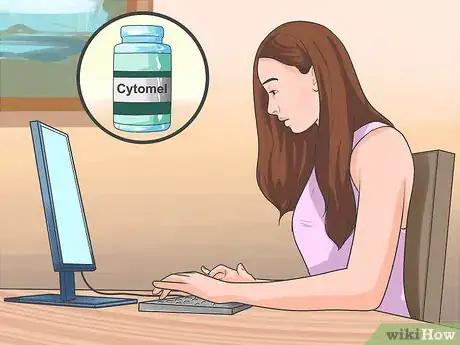


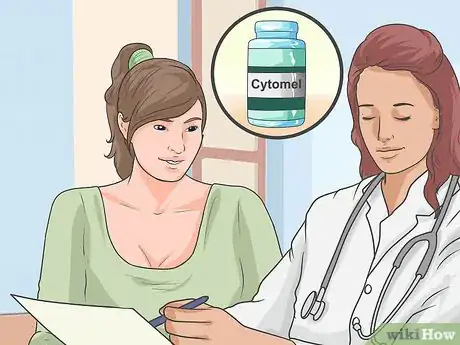
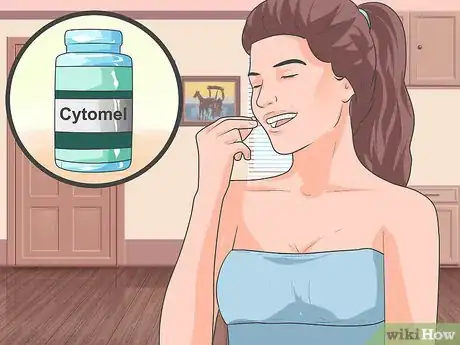


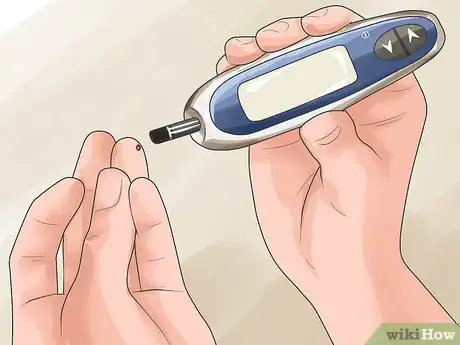
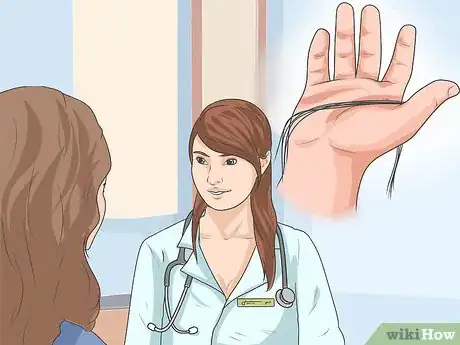
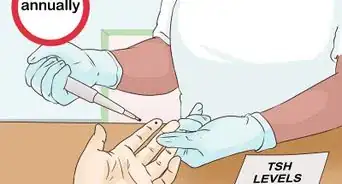









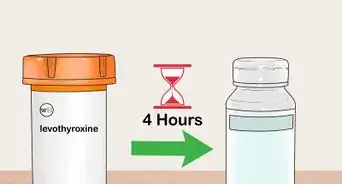
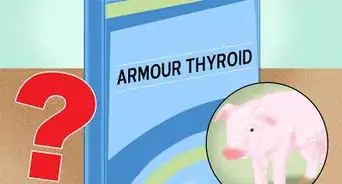
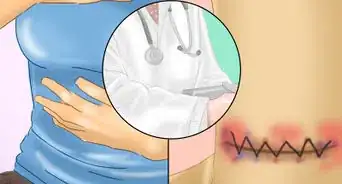








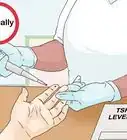

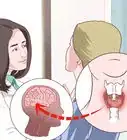




































Medical Disclaimer
The content of this article is not intended to be a substitute for professional medical advice, examination, diagnosis, or treatment. You should always contact your doctor or other qualified healthcare professional before starting, changing, or stopping any kind of health treatment.
Read More...